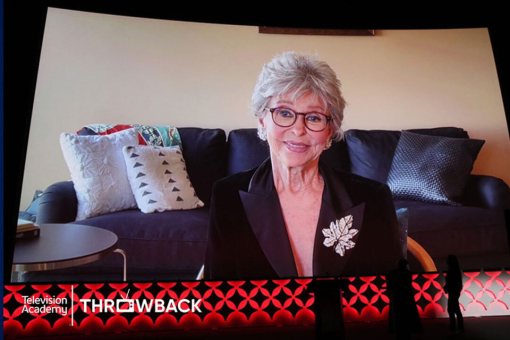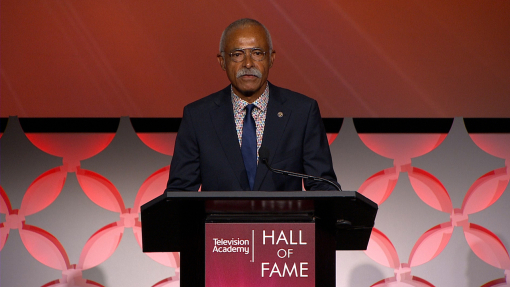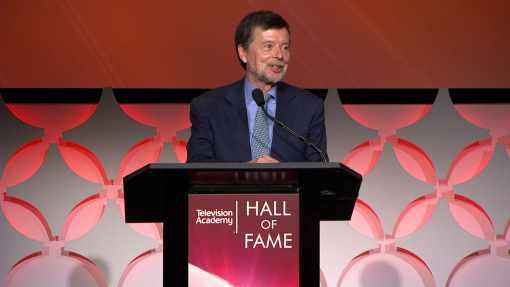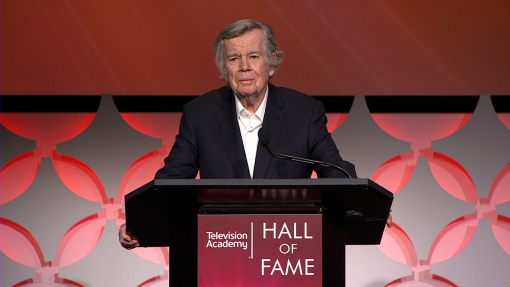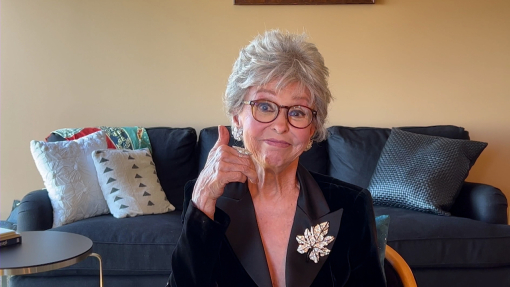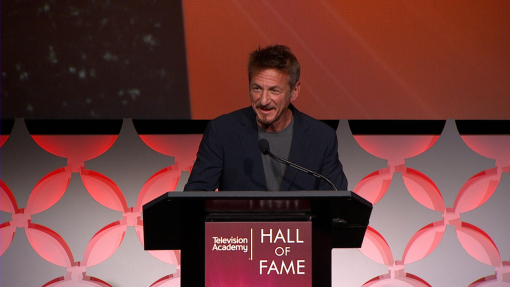When he was cast to play Fred Mertz, the curmudgeonly skinflint landlord on I Love Lucy, William Frawley was 64 and staring at the end of his acting career.
Vivian Vance — cast as his matronly, wisecracking wife, Ethel — was acting on stage at the La Jolla Playhouse, in a play she’d abruptly left six years earlier after having a nervous breakdown.
Yet, within a single television season, these performers not only reversed their personal fortunes, they also helped Lucille Ball and Desi Arnaz turn I Love Lucy into a smash comedy hit.
“I Love Lucy would not have been the same without the Mertzes,” says Rob Edelman, who with his wife Audrey Kupferberg wrote the book Meet the Mertzes. “It would be like The Dick Van Dyke Show without Rose Marie and Morey Amsterdam.”
And yet it was the unlikeliest of pairings. Frawley, whom Desi Arnaz often called “one of the greatest character actors of all times,” may have been a perfect fit as the grumpy landlord. But when Vance took one look at her TV husband — twenty-two years her senior — she was openly dismayed.
“It really bothered her,” says Gregg Oppenheimer, son of the late Jess Oppenheimer, the show’s producer and head writer. “She told people, ‘How will anyone believe I’m married to that old man?’”
Frawley overheard her complaints. “Sure, he was insulted,” Oppenheimer says. “But he spent most of his time in his dressing room, anyway, listening to the baseball game.”
While it’s well known in industry circles that Frawley and Vance were disdainful of each other, the animosity never showed in their work — except when it was written into the script.
ETHEL (to LUCY): Lucy, is that my date? He’s no dream! He’s a nightmare!
FRED: Is that your idea of a cute young chick? You’ll never shop for my poultry!
LUCY (to ETHEL): If some other woman were to take Fred away from you, you’d be singing a different tune....
ETHEL: Yeah, “Happy Days Are Here Again.”
ETHEL: Imagine me meeting a queen face to face. ... I’m scared.
FRED: You’re scared? Think of the queen!
I Love Lucy premiered on CBS in October 1951, and was a success from the start, pulling in a 50.9 rating in its first season. By its second season, Variety was reporting that some 29 million viewers invited the Ricardos and the Mertzes into their living rooms each week. Lucille Ball was crowned America’s number-one comedienne, while her comic foils — Arnaz, Vance and Frawley — each saw their own careers rise exponentially.
Over the course of nine years (the series ran for six regular seasons, followed by three seasons of hour-long specials titled The Lucille Ball-Desi Arnaz Show), the two couples were a winning quartet. And while Vance and Frawley continued to personally dislike each other, their consummate professionalism prevailed. To millions of fans, they were indeed husband and wife.
“Vivian had a great ability to naturalize things,” notes Tom Gilbert, a coauthor, with Coyne Steven Sanders, of Desilu: The Story of Lucille Ball and Desi Arnaz. “There was a lot of detail in her work, and it showed. When she tied Fred to the bed, she made it look like something she did every night.”
That episode, titled “First Stop,” is among the series’ all-time classics. On a road trip from New York to Hollywood, where Ricky is to start his film career, Lucy, Ricky, Fred and Ethel end up in a rundown motel managed by a small-town huckster. When Lucy and Ricky can’t get comfortable in their double bed because of its broken-down springs, Ethel agrees to switch, telling Lucy that the mattress is just like the one they have at home. In a carefully choreographed sequence, she and Frawley do what they do best — make it look natural — as she grabs his long nightgown and ties it to the bed frame.
Frawley, who rarely bothered to read an entire script, preferring to learn only the pages in which he was featured (coworkers said he would tear out those pages and throw the rest away), nonetheless performed with the ease of a seasoned entertainer. “He was such a pro,” says Dann Cahn, who edited the show. “He had spent years in vaudeville and on film, so he always hit his marks.”
Born in Burlington, Iowa, the middle of three sons, William Clement Frawley honed his skills as a singer and comic in vaudeville at the turn of the 20th century. Despite the paunchy physique and thinning hair he would develop, “Bill actually had a very nice career in vaudeville,” Edelman notes.
In 1914, he married his vaudeville partner, Edna Louise Broedt, and together they toured the country with a song, dance and comedy act. Within a year they hit the big time, landing a booking at the famed Palace Theatre in New York.
Frawley broke into silent films in 1916, and when sound arrived in the late 1920s, he shifted into the talkies with a plethora of tough Irish mug roles in mostly ‘B’ films. His marriage to Edna did not last — they divorced after seven years — but his work in films flourished. His roles included a con man in the 1934 Damon Runyon feature The Lemon Drop Kid, a tipsy gunrunner in The General Died at Dawn (1936) and, more notably, a music publisher playing opposite Bing Crosby in Going My Way (1944), a police inspector in Charlie Chaplin’s Monsieur Verdoux (1947) and an all-knowing politician in Miracle on 34th Street (1947).
By this time a confirmed bachelor with a fondness for baseball and the bottle, Frawley began to garner a reputation for being unreliable on the job. Edelman recalls that when Arnaz was considering him for the role of Fred, he sat the actor down and laid it out: “Desi told him, ‘No drinking, no games, or you’re out of here.’ At that point, Frawley was very set in his ways, and he was not really a people person. But he never missed a performance.”
“The character of Fred Mertz was an easy one for Frawley to portray,” says Bob Schiller, one of the show’s writers. “It called for a grump, and he was one.”
In stark juxtaposition, Vivian Roberta Jones — a.k.a. Vivian Vance — was a Broadway actress and singer who had once been an understudy for Ethel Merman. Born in Cherryvale, Kansas, to strictly religious parents — her mother’s fundamentalist views conflicted with young Vivian’s stage ambitions — Vance began her theater career when her family moved to Albuquerque in 1930. She later moved to New York to pursue work as a dramatic actress, but with the country still in the throes of the Depression, she more often landed roles in the chorus.
“Her approach to theater was a very serious one,” Kupferberg says. “She thought of herself as a glamour girl, but she had to take whatever roles came her way.”
And while Vance was an attractive blonde, “she never would have been cast in sexpot roles,” Kupferberg continues. “She didn’t photograph like a glamour queen.”
While performing in the Broadway comedy Out from Under, she met actor Phil Ober, whom she would eventually marry (this would be her third of four marriages). In the mid-1940s, during her marriage to Ober, Vance first experienced mental illness, a plight she discussed publicly in 1955, at the height of her Lucy fame.
“I had passed 35 before I realized that one can no more neglect chronic unhappiness than one can neglect an infected tooth,” Vance said in an interview in McCall’s magazine. “If misery, like a tooth, is left too long to fester, the infection spreads and deepens. This is what happened to me.”
During a 1945 stage production of the hit romantic comedy The Voice of the Turtle, Vance’s condition worsened, and she had to leave the show. Six years later, when her recovery allowed her to return to the stage, she appeared in a revival of Turtle, where Arnaz, director Marc Daniels and Jess Oppenheimer went to see her perform before making their casting decision.
Vance would win a Primetime Emmy for her portrayal of Ethel; Frawley, though nominated five times, never won.
“You had to be a strong performer to play opposite Lucille Ball, because she was the queen of comediennes and she had very little patience for people who wasted her time,” Edelman says.
And while Vance had some issues with the restrictions of her role — she was contractually obligated to be 20 pounds heavier than Ball and wear dowdy costumes — she nonetheless shone.
“What fabulous talent Vivian had to be the second banana!” Edelman muses. “When she and Lucy were on stage together, they were magic.”
As for Frawley, Kupferberg says his delivery of lines on the merits of marriage often became instant classics.
RICKY: Fred, what do you know about rice?
FRED: Well, I had it thrown at me on one of the darkest days in my life.
RICKY: Fred, do you really know anything about chickens?
FRED: Well, for the past twenty-five years I’ve been henpecked!
Frawley’s final on-screen performance was a brief cameo on Ball’s The Lucy Show, in 1965. He died a year later of a heart attack. Vance made her final TV appearance in 1977 on Ball’s CBS special, Lucy Calls the President. She died in 1979 of bone cancer.
“When you really think about these shows, you realize that it’s not just about the stars, it’s also about the supporting players,” Edelman says. “Because without them, you would not have had the same product.”
This tribute originally appeared in the Television Academy Hall of Fame program celebrating Vivian Vance and William Frawley’s induction in 2012.

